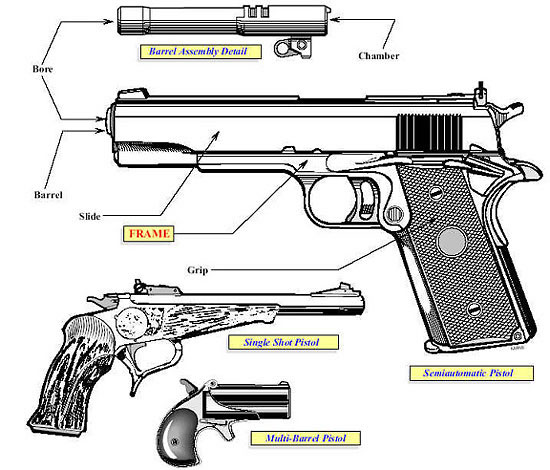Vehicle Searches: Need a Warrant? Nope…
There’s been a bit of controversy floating around the writer community about whether or not police officers can search a vehicle without a search warrant. Lets look at that issue and pick it apart a bit. It can be tricky.
1) If the driver of a vehicle is stopped for speeding can officers search his vehicle?
No, not without the driver’s permission. Even though a traffic stop is technically an arrest, there must be probable cause that leads an officer to believe an actual crime has been committed, and that evidence of that crime could be found inside the vehicle. Again, there must be probable cause!
2) Well, when can the police search a vehicle?
Police officers may search a vehicle without a warrant if they have probable cause to believe the auto contains contraband or the fruits of a crime. However, the vehicle to be searched must have the capability of being mobile. A car that’s been sitting on blocks in the back yard for nine years with its engine hanging from a tree limb doesn’t count. Officers would need a warrant to search that car.
3) Can the police search things that belong to a passenger in your car?
Yes. If the officers have probable cause to search your car for contraband, then tey may search anything inside where those items could be concealed. No warrant is needed.
4) Can the police pat down drivers and passengers?
Sure. If officers have a reasonable suspicion to believe an occupant, or occupants, of a vehicle is concealing a weapon, then they may conduct a pat down (frisk) search of those people. No warrant is needed.
5) Can police officers legally order you out of your car during a traffic stop?
Sure they can. If the officer feels his safety is in jeopardy he can order all occupants out of the vehicle. No warrant is needed.
6) Is it legal for a police officer to ask if she can search your car even though no crime has been committed?
Yes. Officers can, and do, ask if they can search vehicles. In fact, this is an excellent means of discovering contraband. You have the right to refuse a consent search, and, if you do allow the officer to proceed you can ask her to stop at any time. Once you’ve asked the officer to stop the search she must cease at once, unless she finds something illegal. Then she’ll place the driver under arrest and continue the search as a search incident to arrest. Obviously, if contraband is discovered, the driver can longer refuse to allow the search.
Most departments have pre-printed Consent To Search forms that they’ll have the driver sign stating he’s given the officer permission to search. The form is not required by law, but it’s nice to have if the officer does find contraband and takes the matter to court. Written permission is difficult to dispute.
No warrant is needed for a consent search. This also applies to residences and businesses as long as the person granting permission has the legal authority to do so, such as a homeowner, business owner, or renter. A landlord may not give police permission to search a tenant’s home.







I’m with Norm. Just say no. Who knows what your kid’s best friend’s best friend stashed under your seat. And it doesn’t matter who it belongs to. As far as the officer is concerned, it’s yours.
Good stuff Lee. I love 4th amendment discussions.
Terry, if an officer asks to search your car, it’s a good guess it’s not because he thinks there might be a wanted felon in your trunk.
If asked, I’m saying no. I may law abiding and rule following to a fault, have two brothers-in-law who were officers, and be a retired peace officer. I also like police officers. But, the onus is on the officer if he goes ahead and searches the car to be able to stand up in court.
I got stopped once in St. Helena, the officer asked if I knew why he’d stopped me and I hadn’t a clue. He said I’d been speeding (St. Helena is a speed trap). My kids think this story’s hilarious because I’m forever pulling over to let faster cars by. The officer visually searched my Volvo station wagon through the windows.
Thanks, Lee.
She said her husband told her MOST cops were honest, but that if something showed up in the search that wasn’t hers, it would be the cop’s word against hers, and not to take a chance that she’d been stopped by the one rotten apple.
Me — I’m so trusting, I’ll show the crooks where we keep the good silver — or at least I would if we HAD any good silver.
Terry – That’s good advice for a driver, if the officer will fall for it. But that’s not likely. An officer should never allow that situation to take place. Doing so would provide the driver and passengers ample opportunity to destroy, tamper with, or dispose of evidence. If the officer has probable cause to search, then he/she will do so at their convenience, or as the situation dictates. Not at the driver’s will.
Officers don’t need witnesses when conducting a search. They’re nice to have, but not necessary. Nor are they legally mandated. Citizens don’t have the legal right to insist a witness be present, either. Besides, driving is a privilege in this country, not a right. People tend to forget that. (I know – laws of privacy and search and seizure apply no matter what).
One of my crit partners was married to a cop. She said he told her if she was ever stopped and the cop asked to search her vehicle, she should refuse, but offer to follow the cop to the police station where the search could be done with other witnesses present.
Your take?
Thanks –
Joyce – Actually, yes, I’ve seen officers ask records clerks, admin assistants, etc. to pat down female suspects when no female officers were available. It’s a matter of protecting the female suspect’s dignity and the officer against an unjustified lawsuit.
Some places train male officers to use the backs of the hands when patting down female suspects. However, at no time should an officer allow modesty or embarrassment stand in the way of safety. There would be no issue in court if the search was performed in the standard manner. Besides, I’d take a lawsuit over a bullet in the head any day.
So hands against the wall and feet apart, lady.
As usual!
I have a question about searches. When I worked at the PD, if the officers arrested a female they would routinely ask me to do the pat down in the booking room, because we didn’t have a female officer. I did them for awhile, but then started refusing. I never felt comfortable doing them because 1- I’m a civilian–not trained LE, and 2-I didn’t want to get stuck by some junkie’s needle. Are you aware of other departments that had civilians doing pat downs? Could this have been an issue if it came out in court?
Joyce – I was one step ahead of you.
Hi Steven. Good to see you here.
Lets use the term “probable cause” when referring to a warrantless search of a vehicle. Probable cause must exist and officers must be able to effectively articulate that probable cause in court.
If a police officer asks to search your car and you refuse, that should be the end of it. However, sometimes officers do have that gut feeling – the driver is acting really nervous and weird, etc. – and would like to get inside the car even after the refusal. But without probable cause they can’t. What they can do (if they suspect narcotics) is hold the driver long enough to get a canine on the scene to search around the outside of the vehicle. FYI – officers are only allowed to hold someone cases like this for a brief, reasonable amount of time. The kicker to this is that the law doesn’t specify what amount of time is reasonable.
No, officers aren’t normally required to check with a supervisor before conducting a search. However, individual department policy varies. Some may mandate it. It is, however, a good idea for the officer to request backup. The extra officer would then be on hand to supervise the driver and passengers (for safety) and as a witness in case contraband was indeed found.
Also, waiting for a supervisor’s approval to conduct a pat down could prove to be fatal. Suppose the thug had just robbed a bank and still had the weapon tucked inside his pants. He could use the wait time to draw the gun and shoot the officer. Not a good example, but you get the idea. Officers must be able to think and react quickly.
A situations such as the one I described is the reason why officers are allowed to “pat down” someone for officer safety. This type search is a quick check for weapons. No warrant is needed and officers do it several times during the course of a shift. A pat down is performed exactly as it sounds. Officers are not allowed to place their hands inside pockets, etc. They may only “feel” for weapons. There are slight exceptions to this rule, but that’s another post for another day.
I loved those videos! I’ve seen the second one before. I don’t know how that cop stayed so calm.
Where I worked, anytime the officer had someone step out of a vehicle, they did a pat down for “officer safety.” Would you explain that to your readers?
Oh, should have added another question: if an officer decides he needs to conduct any type of warrantless search (vehicle or frisk) would they normally call in to check with a higher up before starting or is this always a decision made without consulting a shift commander or other higher authority?
Two questions: 1 – if a warrantless search relies on a “reasonable suspicion” must the officer be able to articulate that suspicion? Or could they just say, “my gut said…” 2 – If you’re stopped for a traffic violation and the officer asks if they can search the car, can the driver just say no and expect that will end the issue or is that automatically inviting the officer to say “stay put while I call in a request for a warrant”?